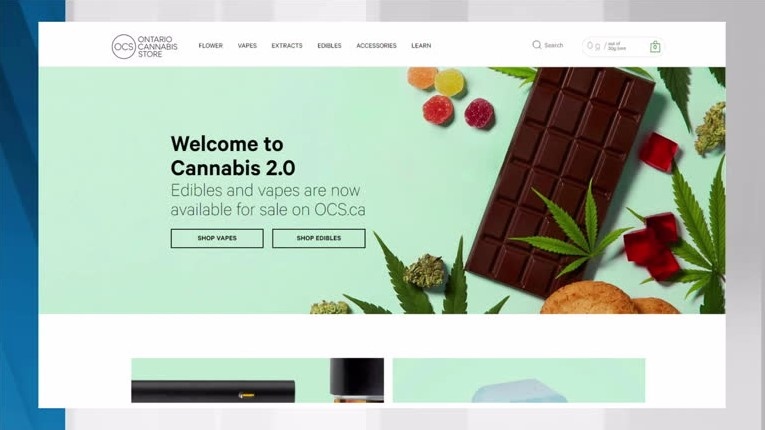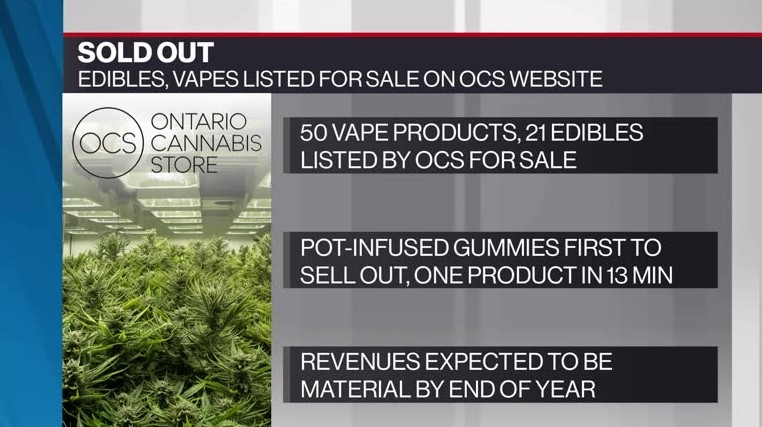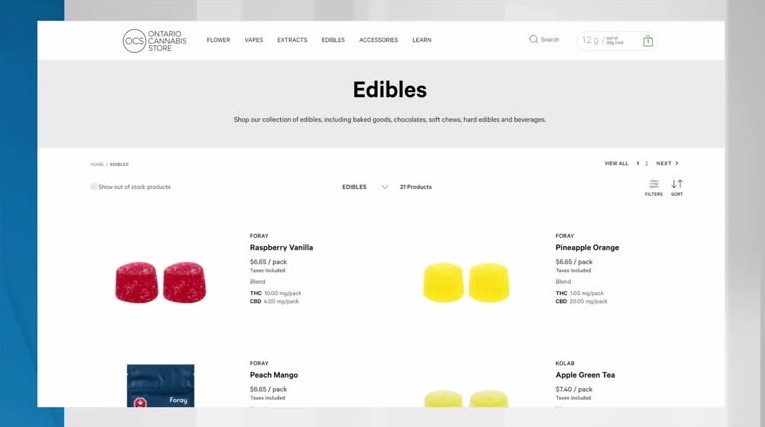
- First tranche of the Offering closed on November 6, 2019, at which time the Company issued an aggregate of 1,264 Units for gross proceeds of $1,264,000
- Accordingly, the Company can issue up to an additional $2,736,000 of Units under the Second Tranche
- In the context of a regular follow-up communication with Health Canada, representatives of the Company received verbal feedback that the application review is complete and the reviewers do not have any more questions.
TORONTO, Jan. 27, 2020 – North Bud Farms Inc. (CSE: NBUD) (OTCQB: NOBDF) (“NORTHBUD” or the “Company“) is pleased to announce that it is arranging a closing for the second tranche (the “Second Tranche“) of its non-brokered private placement of 10% secured convertible debenture units (the “Units“) of the Company at a price of C$1,000 for gross proceeds of up to C$4,000,000, originally announced on November 6, 2019 (the “Offering“). The first tranche of the Offering closed on November 6, 2019, at which time the Company issued an aggregate of 1,264 Units for gross proceeds of $1,264,000. Accordingly, the Company can issue up to an additional $2,736,000 of Units under the Second Tranche.
Each Unit issued in connection with the Second Tranche of the Offering is comprised of one C$1,000 principal amount of secured convertible debenture (a “Convertible Debenture“) accruing interest at 10.0% per annum, payable semi-annually in arrears until maturity, and 5,556 common share purchase warrants of the Company (each, a “Warrant“). The Convertible Debentures will have a maturity date of 36 months from the date of issuance. In addition, under the Second Tranche, the Company has the right to prepay an amount equal to the 1st year of interest to be earned by issuing common shares at a deemed price of $0.25 per common share (the “Prepaid Interest Sharesâ€) on the 15th day following the Closing Date should the holders of the Convertible Debentures not elect to receive their 1st year interest paid in cash.
Each Convertible Debenture shall be convertible into common shares in the capital of the Company (each, a “Conversion Share“) at a price of $0.18 (the “Conversion Price“) per Conversion Share.
Each Warrant entitles the holder thereof to acquire one common share in the capital of the Company (each, a “Warrant Share“) for an exercise price of $0.30 per Warrant Share for a period of 36 months following the closing date.
The Convertible Debentures are direct secured obligations of the Company and rank pari passu in right of payment of principal and interest with all other Convertible Debentures issued under the Offering.
Certain directors of the Company have indicated that they may participate in the private placement. Any such purchase would constitute a “related party transaction†within the meaning of Multilateral Instrument 61-101 – Protection of Minority Security Holders in Special Transactions (“MI 61-101â€). The proposed issuance to directors of the Company would be exempt from the formal valuation and minority shareholder approval requirements of MI 61-101 as the fair market value of any Units issued to or the consideration paid by such insiders would not exceed 25% of the Company’s market capitalization.
The Company may pay registered dealers (the “Finders“) a cash commission equal to up to 8% of the aggregate gross proceeds from the sale of the Units sold pursuant to the Offering to eligible investors introduced to the Company by such Finders. In addition, the Company will grant warrants (the “Compensation Warrantsâ€) exercisable at the Conversion Price for a period of 24 months from the Closing Date to acquire in aggregate the number of Common Shares equal to 8% of the gross proceeds under the Offering divided by the Conversion Price.
The proceeds of the Second Tranche will be used by the Company for expansion of the Company’s facilities and for general corporate and working capital purposes.
The Convertible Debentures, Warrants, Prepaid Interest Shares (if any), and any Compensation Warrants issued pursuant to the Second Tranche of the Offering and any common shares in the capital of the Company issued on conversion of the Convertible Debentures or exercise of the Warrants or Compensation Warrants will be subject to a statutory hold period in Canada of four months and one day following the closing date in accordance with applicable securities laws. Additional resale restrictions may be applicable under the laws of other jurisdictions, if any.
The securities of the Company have not been and will not be registered under the United States Securities Act of 1933, as amended (the “U.S. Securities Act“) or any state securities laws. Accordingly, the securities of the Company may not be offered or sold within the United States unless registered under the U.S. Securities Act and applicable state securities laws or pursuant to an exemption from the registration requirements of the U.S. Securities Act and applicable state securities laws. This news release does not constitute an offer to sell or a solicitation of an offer to buy any of the securities of the Company in any jurisdiction in which such offer, solicitation or sale would be unlawful.
Amendment to Securities Issued in First Tranche of the Offering
The Company further announces that, in order to ensure equitable treatment of holders, it has decided to amend the terms of the debentures (the “First Tranche Debentures“) and warrants (the “First Tranche Warrants“) issued under the first tranche of the Offering, which closed on November 6, 2019. The Company has amended the First Tranche Debentures to reduce the conversion price to $0.18 per common share and has amended the terms of the First Tranche Warrants to: (a) increase the number of warrants issued per $1000 of principal amount of debenture from 2,000 to 5,556; (b) increase the exercise price from $0.25 to $0.30 per warrant; and (c) extend the expiry date of the warrants from 18 months following the closing date to 36 months following the closing date. The amendments are subject to the final approval of the Canadian Securities Exchange (CSE).
Corporate Update
The Company would also like to provide an update regarding the status of its standard cultivation licence application with Health Canada under the Cannabis Act. In the context of a regular follow-up communication with Health Canada, representatives of the Company received verbal feedback that the application review is complete and the reviewers do not have any more questions. Subject to the re-submission of a required foreign police certificate related to one of the foreign directors of the Company, the Company will be in the final queue for receiving its licence. The Company is confident that it will be able to file the certificate promptly; however, there can be no assurance as to the exact timing of the issuance of the licence by Health Canada or whether the Company will receive any final request from Health Canada.
Further to the Company’s announcement regarding its acquisition of certain California-based businesses on November 22, 2019, the Company has proceeded with the issuance of 1,716,000 common shares, at an issue price of $0.25 per share, to an arm’s length advisor to the Company. The shares, which are subject to a statutory hold period as required by applicable securities laws, are based upon the $429,000 cash value of the 3% M&A fee payable to such advisor in respect of the foregoing California acquisitions.
About North Bud Farms Inc.
North Bud Farms Inc.,
through its U.S. subsidiary Bonfire Brands USA, has acquired cannabis
production facilities in California and in Nevada. The Salinas,
California 11-acre farm is actively cultivating cannabis in its 60,000
sq. ft. of licensed greenhouse production space. The Reno, Nevada
property is located on 3.2-acres of land which was acquired through the
acquisition of Nevada Botanical Science, Inc. a world class cannabis
production, research and development facility with 5,000 sq. ft. of
indoor cultivation which holds medical and adult use licenses for
cultivation, extraction and distribution. Through its wholly owned
Canadian subsidiary, GrowPros MMP Inc., the company is pursuing a
licence under The Cannabis Act, to cultivate in its state-of-the-art
purpose-built cannabis production facility located on 135-acres of
Agricultural Land in Low, Quebec, Canada.
For more information visit: www.northbud.com
Neither the Canadian Securities Exchange (the “CSE“) nor its Regulation Services Provider (as that term is defined in the policies of the CSE) accepts responsibility for the adequacy or accuracy of this release.
Forward-looking statements
Certain statements
included in this press release constitute forward-looking information or
statements (collectively, “forward-looking statements”), including
those identified by the expressions “anticipate”, “believe”, “plan”,
“estimate”, “expect”, “intend”, “may”, “should” and similar expressions
to the extent they relate to the Company or its management. The
forward-looking statements are not historical facts but reflect current
expectations regarding future results or events. This press release
contains forward- looking statements that include, but are not limited
to, statements related to the intended use of proceeds from the
Offering, and the status of the Company’s licence application with
Health Canada under the Cannabis Act. These forward-looking statements
are based on current expectations and various estimates, factors and
assumptions and involve known and unknown risks, uncertainties and other
factors. Such risks and uncertainties include, among others, the risk
factors included in North Bud Farms Inc.’s final long form prospectus
dated August 21, 2018, which is available under the issuer’s SEDAR
profile at www.sedar.com.
FOR ADDITIONAL INFORMATION, PLEASE CONTACT:
North Bud Farms Inc.
Edward Miller
VP, IR & Communications
Office: (855) 628-3420 ext. 3
[email protected]



















